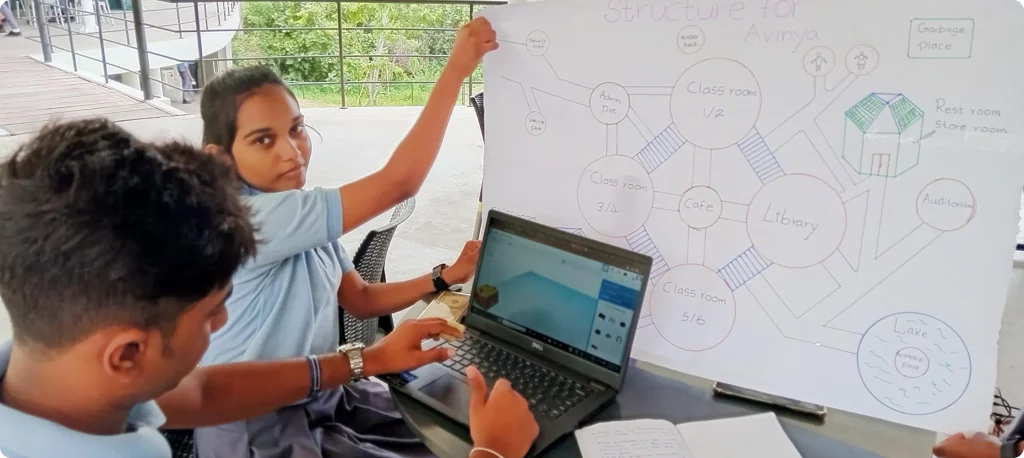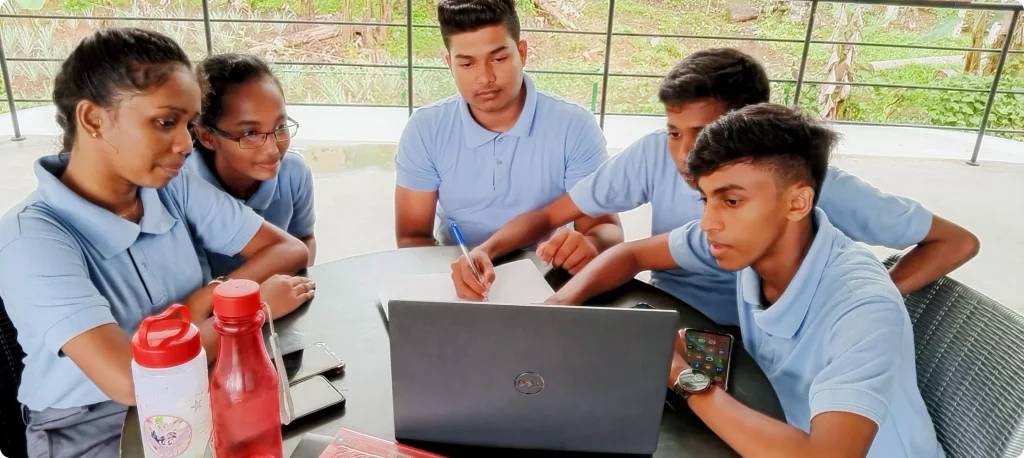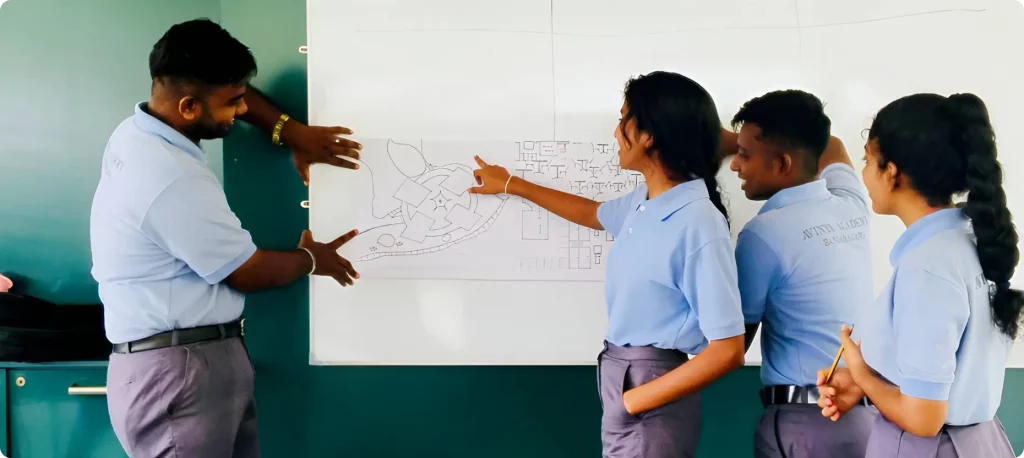
Student Milestones
At Avinya, we take a unique approach to assessment that is tailored to the needs of our students. We understand that traditional, formal assessments may not accurately capture the true potential and progress of our particular student profile. Taking this into consideration, we prioritize practical assessment methods that reflect real-life situations and challenges.
Through the use of rubrics specifically designed to evaluate 21st-century skills, we assess students based on their ability to effectively communicate, collaborate, think critically, and solve complex problems. As the world evolves, these skills are becoming more and more important for success in today’s world. By valuing and assessing these skills, we ensure that our students from underserved communities are equipped with the tools they need to thrive in higher education and beyond.

In addition, we strongly believe in building student confidence through our assessment practices. We understand the challenges faced by students from underserved communities and the importance of building their self-belief. Therefore, our assessments are designed not only to measure academic progress but also to empower students and boost their confidence. We provide supportive feedback and create a nurturing environment where students feel safe to take risks, make mistakes, and grow.
To ensure a more comprehensive evaluation we assess students’ project work through various dimensions that include:
Inquiry Questions
Evaluating students' ability to ask meaningful and thought-provoking questions that drive their project.
Practical Project Work
Assessing students' ability to successfully solve the problems posed through their project while considering the practical aspects and application of knowledge.
Collaborative Working
Evaluating students' ability to effectively collaborate with peers, demonstrating teamwork, communication, and cooperation skills.
Individual Contribution to Teamwork
Assessing each student's unique contribution to the team effort, considering their initiative, creativity, and overall commitment.

Recognizing the significance of English and digital literacy in today’s interconnected world, we integrate practical assessment methods to gauge students’ proficiency in these areas. Our assessments focus on real-life applications of English language skills and practical use of digital tools. Through hands-on tasks and real-world scenarios, we ensure that students develop the necessary language fluency and digital literacy skills to thrive in professional settings.

As firm believers of fostering a culture of thinking outside the box, this extends to our assessment practices, where we strive to be dynamic and inventive. We thrive on approaches that capture the diverse abilities and potential of our students. By actively seeking input and insights, we continuously enhance our assessment methods, ensuring they align with our mission of fostering innovative thinking and creative problem-solving.